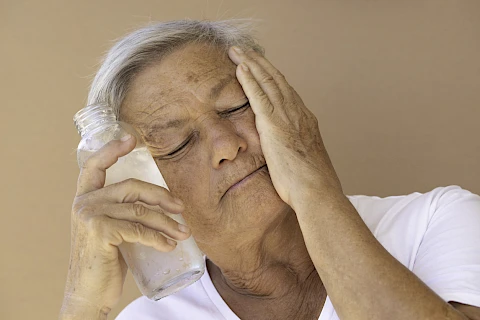
Overheating in seniors is a serious concern, especially for younger adults, as it can increase their sensitivity to heat and sunshine. For caregivers and family members, having a good grasp of why older retirees are more prone to heat exhaustion is vital. Senior Helpers Greater League City - Galveston, TX, breaks down these concerns and shares ways to keep your elderly loved ones safe.
The Science Behind Overheating in Seniors
One key reason older loved ones overheat more easily is due to changes in their skin. As people age, their skin becomes thinner. Thinner skin has fewer sweat glands, which means it doesn't cool down, as does younger skin. Those in their golden years have a decreased ability to regulate body temperature, making it more challenging to stay cool.
Common Medical Conditions That Increase Sensitivity
Certain medical conditions can make older adults more vulnerable to heat exhaustion. Here's a breakdown of some common ones:
- Cardiovascular Issues: Heart problems can affect the body's ability to pump blood efficiently, hindering cooling.
- Diabetes: Nerve damage caused by diabetes can reduce the body's ability to sense temperature changes, making it harder to recognize a possible heatstroke.
- Medications: High blood pressure, heart disease, and depression meds can interfere with the body's temperature regulation.
- Cognitive Issues: Dementia and Alzheimers can make it hard for golden-agers to recognize when they are heat weary, so caregivers need to be vigilant.
Recognizing the Signs of Elderly Heat Exhaustion
Dehydration can increase the risk of overheating in seniors, which is more dangerous as people age due to a decreased ability to sense temperature changes. It means they may need to realize how hot it is, even in hazardous temperatures. Spotting the early manifestations of heat fatigue can prevent serious health issues. Look for these physical symptoms:
- Excessive sweating or lack thereof: Sweating often or not at all can signify heat stress.
- Red, hot, and dry skin: Skin that feels unusually warm or dry could indicate trouble.
- Rapid pulse and breathing: A fast heartbeat or quick breathing can be a sign of heat stress.
- Elderly behavioral changes: Sudden confusion or increased agitation may be due to heat.
- Feeling faint or weak: An upset stomach can also indicate that the body is heat exhaustion.
Preventive Measures for Caregivers
Caregivers play a crucial role in safeguarding elders from the dangers of heat-related illnesses. Here are some preventive measures:
- Encourage frequent water intake throughout the day. Offer small sips to avoid overwhelming them.
- Utilize fans or air conditioning to maintain a comfortable indoor temperature. Close curtains or blinds during peak sunlight hours.
- Schedule outdoor activities for early mornings or late evenings when temperatures are cooler.
- Dress older adults in lightweight, loose-fitting clothing made from breathable fabrics.
- Provide hats, sunglasses, and sunscreen with a high SPF to protect their skin from the sun's harmful rays.
Providing Compassionate Elderly Care and Support
Understanding the reasons behind overheating in seniors and recognizing the warning signs can significantly impact the situation. If you need assistance caring for older relatives in Galveston, Dayton, Angleton, or Bay City, contact us at Senior Helpers Greater League City - Galveston, TX, for professional help.